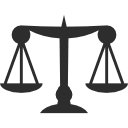Chapter 13 Bankruptcy

What is Chapter 13 Bankruptcy?
Overview
This chapter of the Bankruptcy Code provides for adjustment of debts of an individual with regular income. Chapter 13 allows a debtor to keep property and pay debts over time, usually three to five years.
Eligibility Criteria and Filing Process
Any individual, even if self-employed or operating an unincorporated business, is eligible for chapter 13 relief as long as you do not earn enough or your income is not steady, the bankruptcy court might not allow you to file for this type of bankruptcy. You owe too much money. Debtors may be disqualified for Chapter 13 if their outstanding debts are too high.
Benefits of Chapter 13 Repayment Plans
A chapter 13 bankruptcy is also called a wage earner's plan. It enables individuals with regular income to develop a plan to repay all or part of their debts. You keep your assets Protection Against Creditor Actions. Once the debt is discharged by the bankruptcy court, the discharge permanently bars the creditor or debt collector from collection of the debt. A Chapter 13 case will also remain on your credit report for up to seven years, but the time starts running from the date you file your case.
Attorney Christine Pisiecki provides comprehensive Chapter 13 bankruptcy representation, addressing your unique financial challenges with care and expertise with the following:
- Personalized Case Evaluation
- Customized Repayment Plans
- Negotiation with Creditors
- Foreclosure Defense and Asset Protection
Start Your Journey to Financial Freedom Today
Ready to take control of your financial future? Contact Attorney Christine Pisiecki for a free consultation. We're here to listen, guide, and support you through the Chapter 13 bankruptcy process.
Schedule Your Free Consultation Now
Chapter 13 Bankruptcy

What is Chapter 13 Bankruptcy?
Overview
This chapter of the Bankruptcy Code provides for adjustment of debts of an individual with regular income. Chapter 13 allows a debtor to keep property and pay debts over time, usually three to five years.
Eligibility Criteria and Filing Process
Any individual, even if self-employed or operating an unincorporated business, is eligible for chapter 13 relief as long as you do not earn enough or your income is not steady, the bankruptcy court might not allow you to file for this type of bankruptcy. You owe too much money. Debtors may be disqualified for Chapter 13 if their outstanding debts are too high.
Benefits of Chapter 13 Repayment Plans
A chapter 13 bankruptcy is also called a wage earner's plan. It enables individuals with regular income to develop a plan to repay all or part of their debts. You keep your assets Protection Against Creditor Actions. Once the debt is discharged by the bankruptcy court, the discharge permanently bars the creditor or debt collector from collection of the debt. A Chapter 13 case will also remain on your credit report for up to seven years, but the time starts running from the date you file your case.
Attorney Christine Pisiecki provides comprehensive Chapter 13 bankruptcy representation, addressing your unique financial challenges with care and expertise with the following:
- Personalized Case Evaluation
- Customized Repayment Plans
- Negotiation with Creditors
- Foreclosure Defense and Asset Protection
Start Your Journey to Financial Freedom Today
Ready to take control of your financial future? Contact Attorney Christine Pisiecki for a free consultation. We're here to listen, guide, and support you through the Chapter 13 bankruptcy process.
Schedule Your Free Consultation Now
Christine R Piesiecki, Attorney At Law
9800 S Roberts Rd, Palos Hills, IL 60465
Business Hours:
- Mon - Fri
- -
- Saturday
- -
- Sunday
- Closed
